Blog
The fundamentals of stakeholder strategy
A practical guide to tailored stakeholder management, offering strategies and tools to identify, map, and nurture relationships.
It’s agreed Australia is experiencing an energy problem. Energy in Australia has traditionally relied on fossil fuels, significantly impacting the environment and driving public demand for a transition to abundant natural resources like solar and wind. However, high interest rates and inflation have escalated the cost of living, making energy bills a substantial burden for consumers. This energy crisis isn’t just a political or environmental issue—it’s a pressing challenge that directly affects the everyday lives of residents across Australia, underscoring the urgent need for viable, sustainable solutions.
With rising costs of living and energy bills, there is increasing public interest in renewable resources like solar and wind. However, the debate over their cost-effectiveness continues, especially in comparison to other energy sources like nuclear. By aligning this public sentiment with media coverage, we gain a clearer understanding of the energy crisis, ensuring that the conversation addresses the real challenges faced by residents and drives more relevant, actionable solutions.

As some energy companies report challenges in meeting grid demand and governments urge caution around energy and electricity usage, significant proposals are announced to make energy consumption more affordable for consumers and the planet. Political agendas appear to dominate energy coverage, leaving less room for stories on household energy consumption and challenges. Public engagement often mirrors this focus, gravitating toward politically driven narratives. Conversation on energy doesn’t follow a general consensus on which political party has the right plan or what is the right way of helping people afford their bills, or even what energy source is genuinely beneficial for the planet.
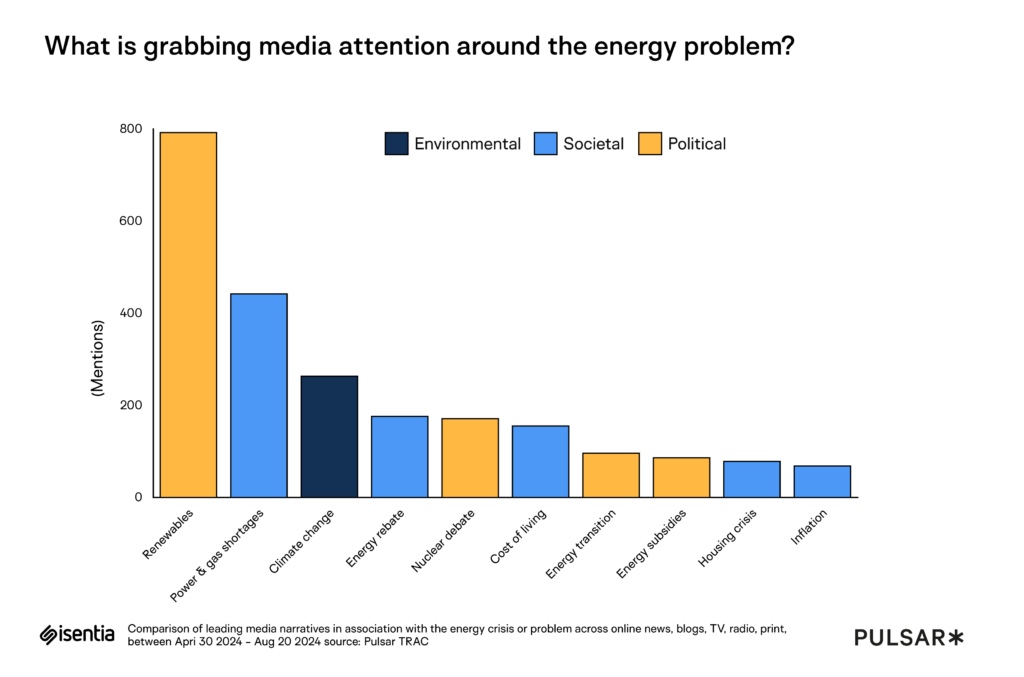
The societal repercussions of the energy crisis are a major theme, with extensive coverage on how rising energy costs and supply challenges are affecting households and personal consumption. Discussions on renewable energy and alternative sources often intersect with political policy and are used as political pawns in energy debates. While renewables and the energy transition are promoted as pathways to sustainable and affordable energy, some industry and political figures argue the opposite, claiming that the swift shift toward renewables is causing issues that negatively impact communities and households. Climate change remains a significant issue, but as domestic stories dominate the news, concerns about inflation and the persistently high cost of living are taking precedence over environmental matters when it comes to energy coverage. Energy rebates, like the $1000 provided to Queenslanders by the State Government and relief measures in the Federal budget, are being used as short-term solutions to recurring issues. These discussions are more directly tied to household relief, reflecting the immediate need to ease the burden on consumers facing rising energy costs, rather than addressing the root causes of the crisis.
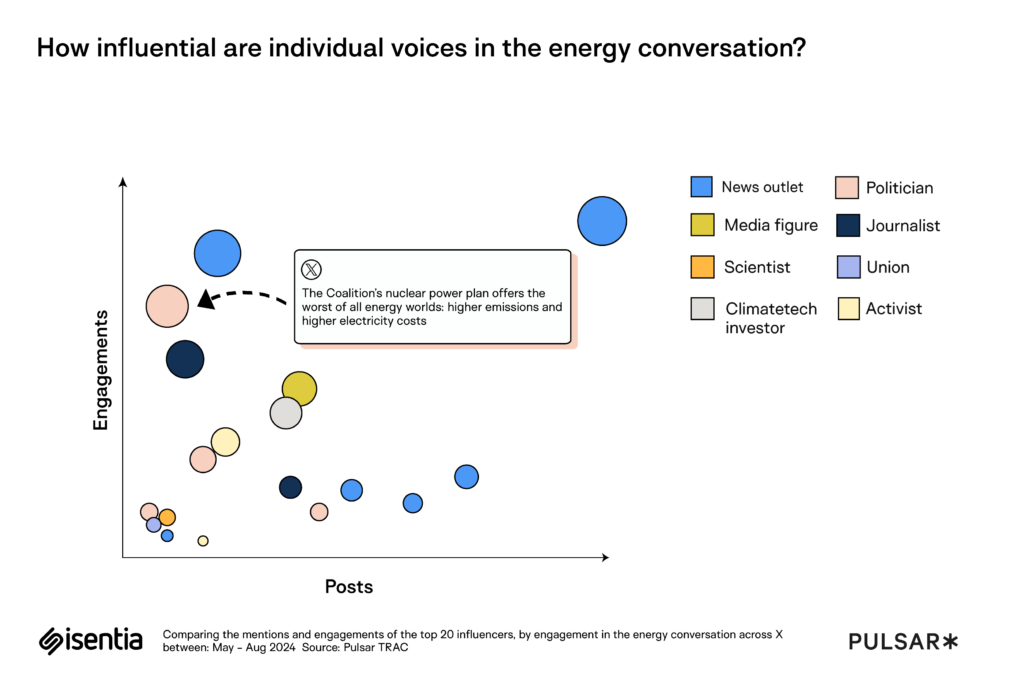
Experts like scientists, who have the qualifications to offer informed critiques, receive far less engagement than unqualified commentators. Meanwhile, activists with a vested interest in climate impact are notably less vocal. Political leaders, news outlets, and public figures dominate the conversation on X, overshadowing voices grounded in expertise. The prominence of a Union as a leading voice underscores how politics is overshadowing facts. Audience reactions often dismiss their content as propaganda, irrelevant to the real needs of Australian workers.

The coverage of the energy crisis differs across radio, print, online news, and TV. Radio takes a conversational yet urgent tone, emphasising immediate impacts like low hydro levels and rising prices. Print and online news are more analytical, discussing long-term energy cost trends and current spikes without alarm. TV is dramatic and urgent, highlighting recent events such as gas plant outages and soaring prices, drawing comparisons to past crises. These broad conversational trends show each medium reflecting its strengths: radio engages emotionally, print and online provide depth, and TV delivers real-time impact.
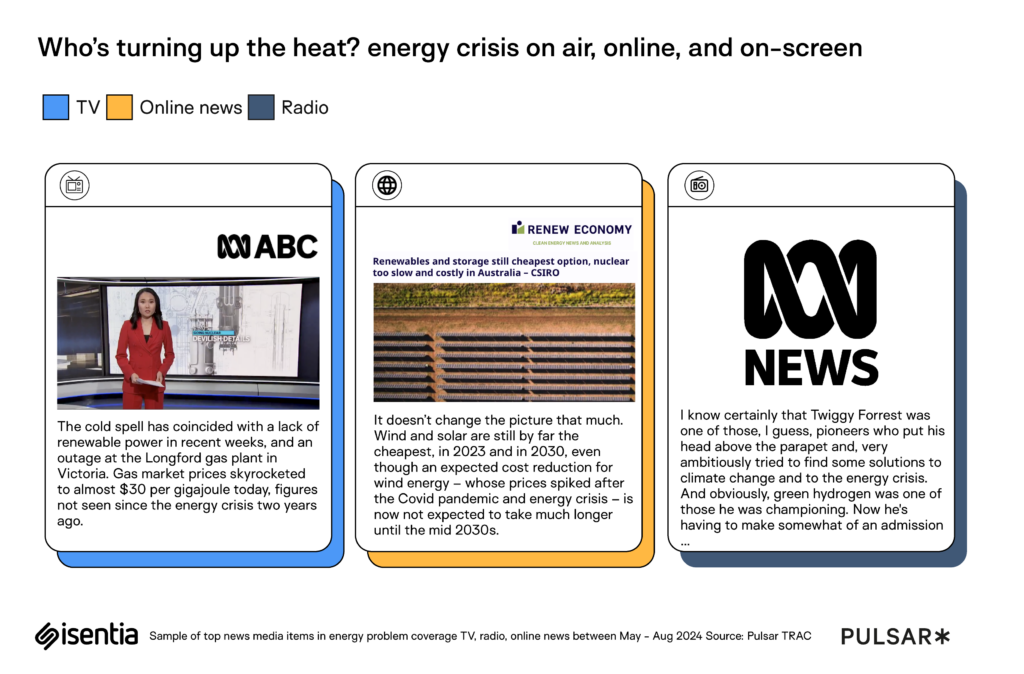
Some of the top stories by platform hone in on the region’s vulnerability to extreme weather conditions, from intense cold to scorching heat, exposing the weaknesses in its energy production.
TV coverage of the energy crisis vividly portrays its urgency and complexity, using real-time visuals to highlight immediate impacts like cold spells and gas plant outages on soaring prices. Unlike print news or radio, TV can show the tangible effects of extreme weather and energy shortages in more detail, adding a personal touch through on-the-ground reports. The coverage not only underscores job losses and community effects but also reflects political angles, emphasising perceived failures or inadequacies in government policies. Future concerns are addressed with market warnings about potential shortages and delays in transitioning to renewables and nuclear energy, blending immediate challenges with long-term uncertainties.
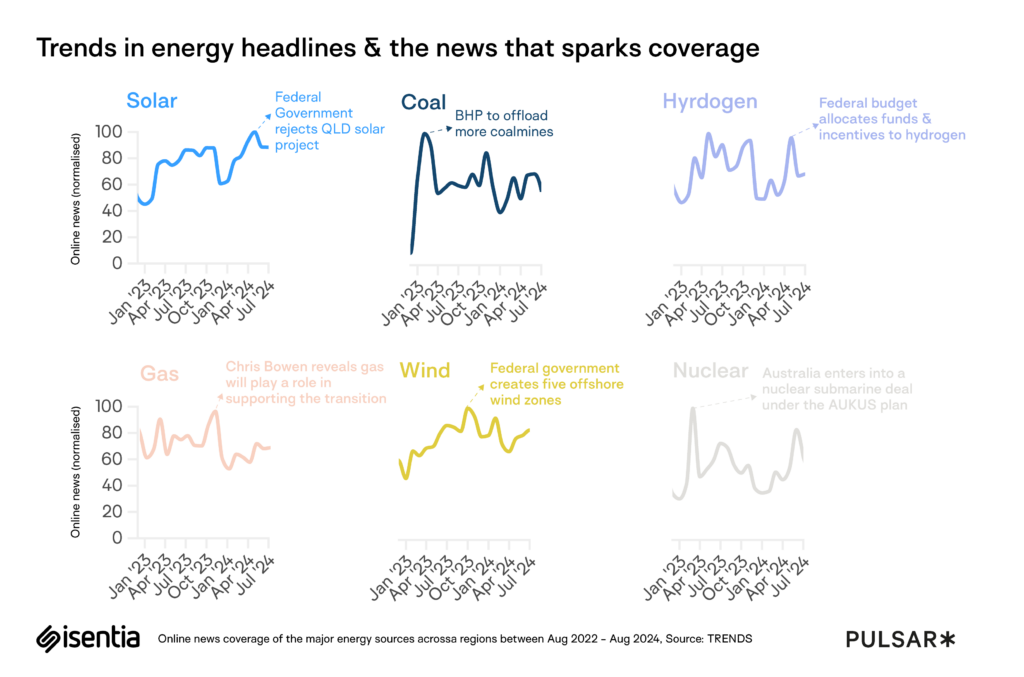
News suggests that major energy sources are being used as political leverage, with true costs and benefits hidden behind competing agendas and ideological battles. The top headlines, for example, indicate that decisions and public understanding are informed more by political posturing than a genuine commitment to sustainable solutions. We’ll delve into the media analysis of these energy sources in the weeks to come. Media coverage highlights this shift, but social media reactions are polarised, often driven by political ideology rather than the substance of the policy. Experts opposing views on social media show just how layered the understanding of energy, climate change and ultimately the energy transition is.
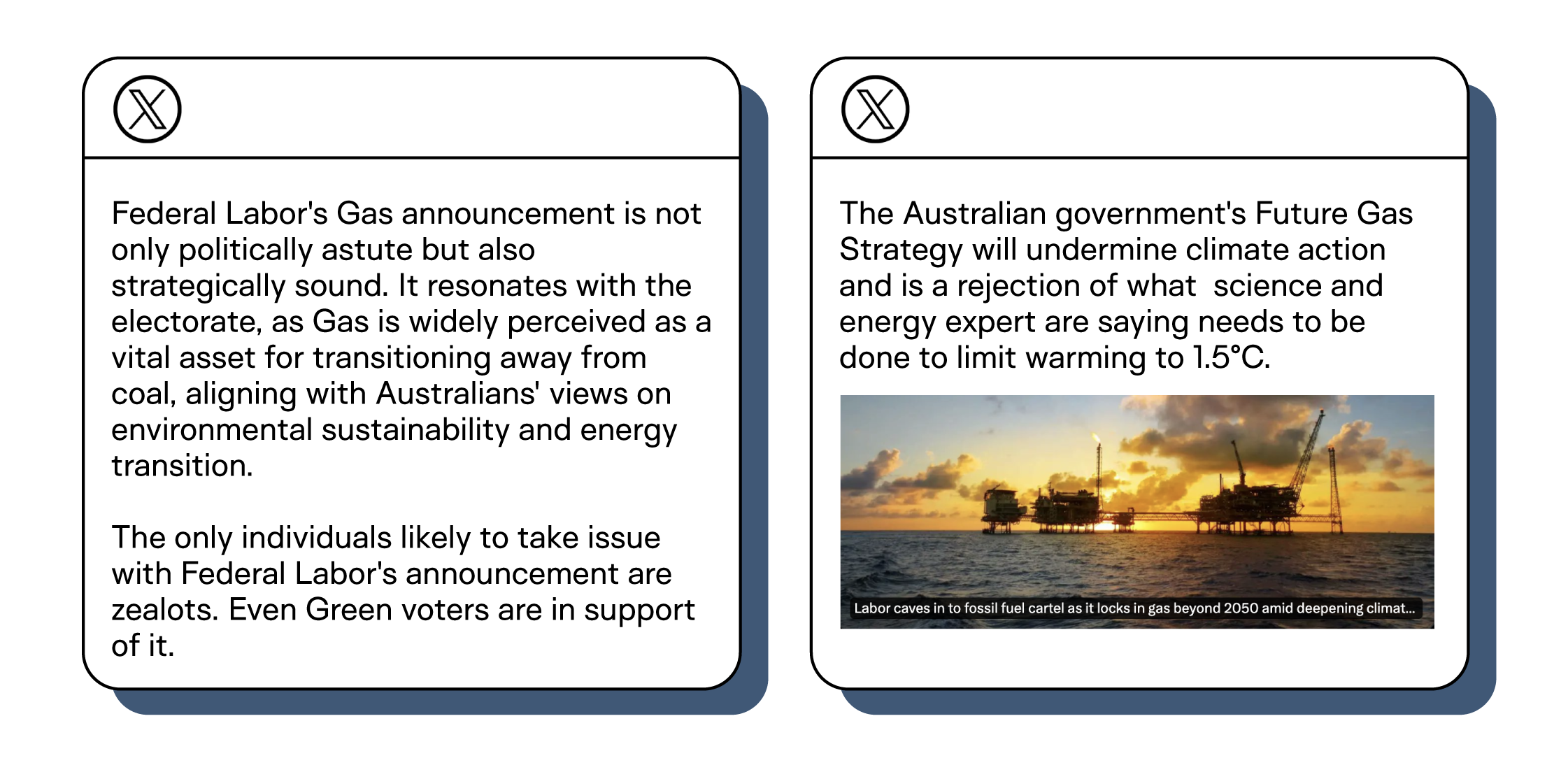
This shift from expert-driven discussion to politically charged rhetoric distorts public understanding and sidelines the critical dialogue needed to address the region’s energy and climate challenges. The energy crisis in Australia has reached a critical point, where rising costs, political debates, and the push for renewable energy are all converging. The situation is impacting everyday lives, and the media’s portrayal, combined with consumer voices, is shaping public perception and the urgency for actionable solutions.
Interested in learning more? Email us at info@isentia.com
Loren is an experienced marketing professional who translates data and insights using Isentia solutions into trends and research, bringing clients closer to the benefits of audience intelligence. Loren thrives on introducing the groundbreaking ways in which data and insights can help a brand or organisation, enabling them to exceed their strategic objectives and goals.
A practical guide to tailored stakeholder management, offering strategies and tools to identify, map, and nurture relationships.
Across the communications landscape, teams are being asked to do more with less, while staying aligned, responsive and compliant in the face of complex and often shifting stakeholder demands. In that environment, how we track, report and manage our relationships really matters. In too many organisations, relationship management is still built around tools designed for […]
Get in touch or request a demo.